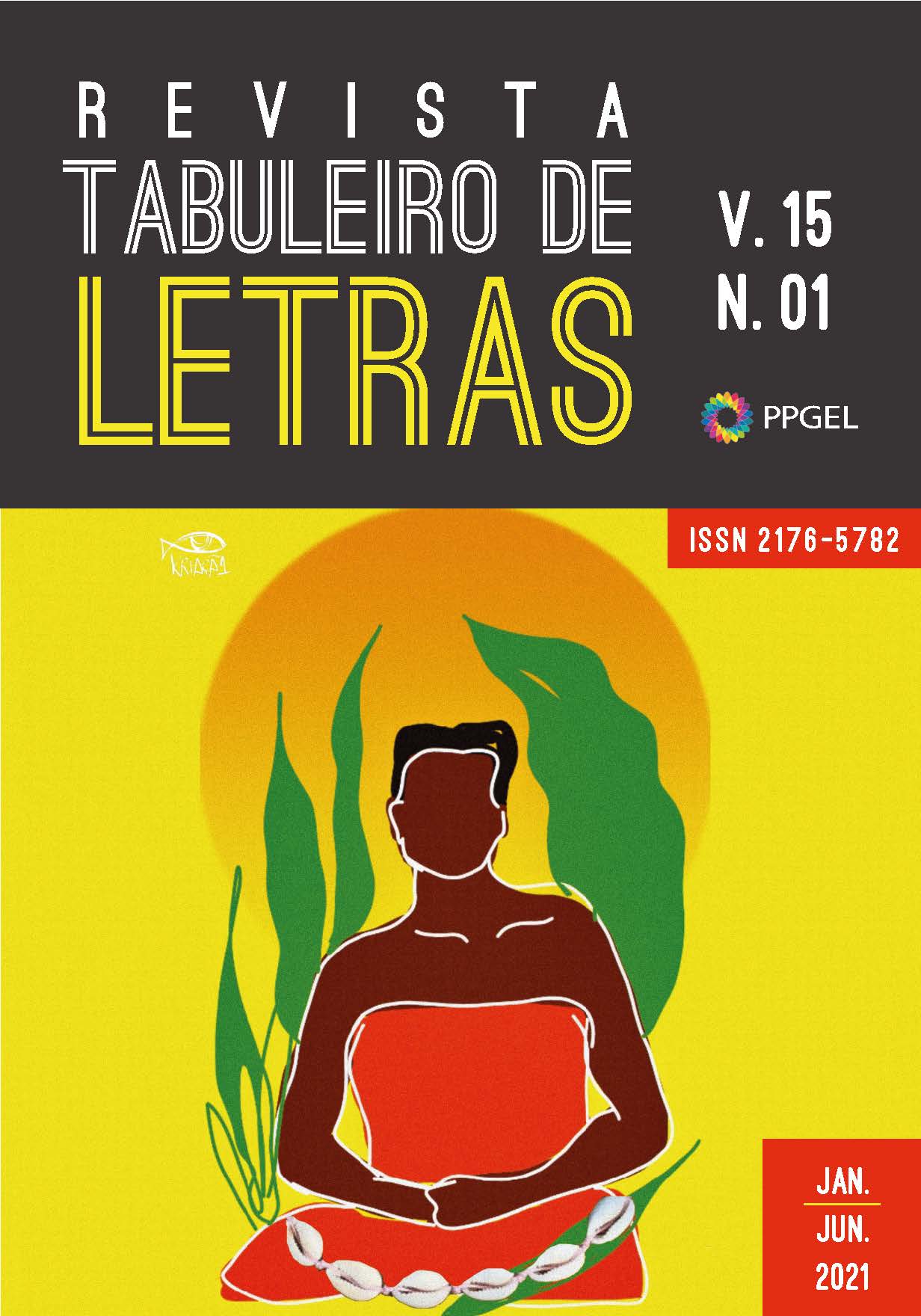Discurso político
Uma análise de marcas da subjetividade em Tweets do presidente Jair Bolsonaro
DOI:
https://doi.org/10.35499/tl.v15i1.11406Abstract
This article aimed to analyze messages of President Jair Bolsonaro posted on Twitter, pointing out the various discourses and ideologies that permeate these discourses, in addition to showing how the Information and Communication Technologies (ICTs) allowed new ways to transmit the discourses of the political class taking the social networks, especially Twitter, as a discursive genre with power of reach and instant dissemination of discourse. The work was based on the theories of Freud (2012), Lacan (1992, 2009) to talk about of the subjectivity as a psyche; Benveniste (1989, 1998), about subjectivity in language; Paveau (2013), Santos (2011), Silva (2018) on the use of ICTs; Mussalim (2001) and Bakhtin (2003) to talk about discourse and discursive genres. The methodological procedure adopted the bibliographic research related to the qualitative content analysis. And the corpus of this work is composed of two texts mounted from prints of messages posted on Twitter. After the analyses, it was concluded that Twitter as a discursive genre provides the subjects with an efficient way to disseminate their discourses, where it is clear several marks of subjectivity in the texts posted, being linguistic or presented through the technodiscursive tools available on Twitter.
Downloads
References
BAKHTIN, M. Os gêneros do discurso. In: BAKHTIN, M. Estética da criação verbal. São Paulo: Martins Fontes, 2003. p.261-306.
BENVENISTE, É. Da subjetividade da linguagem. Em Problemas de Linguística Geral I. 2.ed. Campinas: Editora da Unicamp; Pontes, 1998. p. 284-293.
BENVENISTE, É. Problemas de linguística geral II. Tradução Eduardo Guimarães... et al. Campinas, SP: Pontes, 1989.
CHECCHINATO, D. (1979). Introdução à edição brasileira. In A. Lamaire, Jacques. Lacan: uma introdução (pp. 1116). Rio de Janeiro: Campus.
FREUD, S. (2012). A Interpretação Dos Sonhos (Vol. 2). Porto Alegre: L&PM. (Originalmente publicado em 1900).
HENRY, P. A ferramenta Imperfeita: língua, sujeito e discurso. Tradução de Maria Fausta P. de Castro, 2ª ed. Campinas: Editora da Unicamp, 2013.
LACAN, J. (2009). O Seminário, Livro 1: Os escritos técnicos de Freud. Rio de Janeiro: Jorge Zahar. (Seminário proferido em 1953-54
LACAN, J. , ibid., apud Dor, Joël. Introdução à leitura de Lacan: o inconsciente estruturado como linguagem. 3ed. Porto Alegre: Artes Médicas, 1992.
LIMA, P. S. Marcas da enunciação em notícias destinadas ao público infantil. Revista Todas as Letras, São Paulo., v. 17, n. 1, p. 126 - 137, jan/abril. 2015.
MUSSALIM, Fernanda. Análise do Discurso. In: MUSSALIM, F.; BENTES, A. C. (Orgs.). Introdução à linguística: domínios e fronteiras. v. 2. 1 ed. São Paulo: Cortez, 2001. p. 101-142.
PAVEAU, M-A. Technodiscursivités natives sur Twitter. Une écologie du discours numérique », dans Liénard, F. (2013, coord.). In: Culture, identity and digital writing, Epistémè 9, Revue internationale de sciences humaines et sociales appliquées, Séoul: Université Korea. 2013, p. 1-19.
SANTOS, R. de C. S. Twitter como exemplo do gênero Textual microblog. In IV Encontro Nacional de Hipertexto e Tecnologias Educacionais. Universidade de Sorocaba. 2011.
SEVERINO, A. J. Metodologia do trabalho científico. 23. ed. rev. e atual. – São Paulo: cortez. 2007.
SILVA, A. P. Tics no ensino de Língua Inglesa: mediações pedagógicas no ensino aprendizagem na turma de 3º ano do Ensino Médio do C.E. Antônio Macêdo de Almeida – Governador Newton Bello – MA. Monografia (Graduação) – Santa Inês, MA, 2018.
Downloads
Published
How to Cite
Issue
Section
License
Autor(es) conservam os direitos de autor e concedem à Revista o direito de primeira publicação, com o trabalho simultaneamente licenciado sob a Licença Creative Commons Attribution que permite a partilha do trabalho com reconhecimento da autoria e publicação inicial nesta Revista.

















